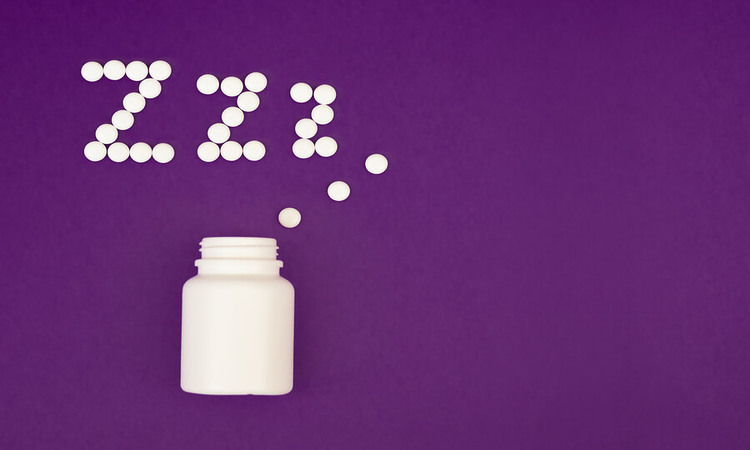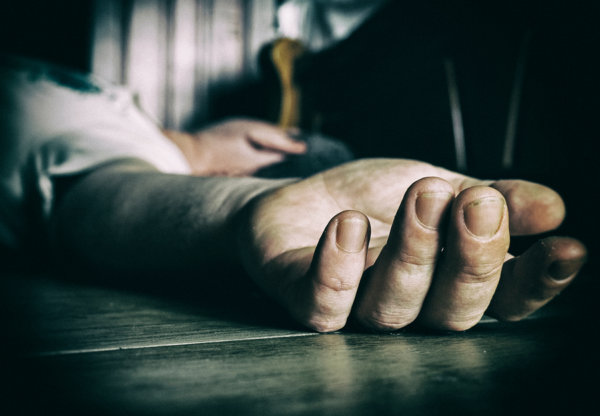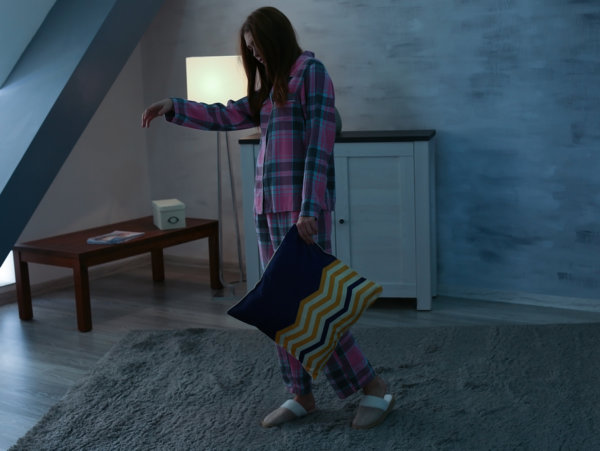
Can You Overdose on Ambien? – Ambien (zolpidem) is a prescription sedative and hypnotic. It is commonly used to treat insomnia and other sleep disorders. Ambien helps put the person’s brain into an “in-between” waking and sleeping state sometimes referred to as the hypnogogic state—people who experience sleep disorders, such as insomnia, have difficulty getting to this state.
Some people have reported engaging in hazardous activities after using Ambien, such as sleepwalking and sleep-driving, which have led to accidental deaths. Beyond the potential for a sleep-related injury, another possible consequence of Ambien use is an overdose. Because it is a depressant, Ambien overdoses can occur when the drug is misused at high doses.
Can You Overdose on Ambien?
Whenever powerful sedatives are involved, there is always a risk of dangerous health complications, and Ambien is no exception to this rule. That said, it requires a very high amount of Ambien to result in death. Ambien acts rapidly and remains effective for just a few hours, meaning that very high amounts are needed in a short amount of time to be lethal.
How Many Ambien to Cause Overdose?
Medically prescribed Ambien doses start in the 5–10 mg range. When a patient passes this recommended amount, the potential for adverse consequences increases exponentially.
Recreational users have reported taking doses of 400–600 mg, which will very likely result in an overdose, although not necessarily death. Experts estimate that a fatal amount of Ambien is approximately 2,000 mg. Of note, however, harmful outcomes can occur far before this amount has been reached.
At 2,000 mg, a person would have to consume 200 pills at 10 mg each—so how is overdose possible unless it’s entirely intentional? Well, other unsafe practices regarding drug use can amplify the risk of an overdose, such as tampering with Ambien and taking it in non-directed, abusive ways such as chewing, snorting, or injecting it. In fact, this type of tapering invalidates any innate safeguards, as this rapid-release drug enters the bloodstream abruptly and immediately.
Overdoses are also more likely to occur when Ambien is used in conjunction with other drugs, particularly sedatives, painkillers, or alcohol. Ambien and alcohol is an especially dangerous and, unfortunately, common combination, as is discussed later in this article.
Ambien Overdose Symptoms

Ambien overdose symptoms include:
- Slurred speech
- Extreme drowsiness
- Inability to awaken
- Confusion
- Irrational thoughts
- Abnormal breathing
- Respiratory arrest
- Coma
- Death
If someone you know appears to be overdosing on Ambien, call 911 immediately.
Ambien Overdose Treatment
In the case of an overdose on Ambien, doctors may administer an antidote called flumazenil to counteract the person’s sedation. If necessary, medical personnel may also choose to remove Ambien from the stomach entirely, but this procedure is typically only necessary in the most severe overdose situations.
Dangers of Mixing Alcohol and Ambien
Because of the potency of this medication and its potential for chronic abuse, Ambien prescriptions are often limited to 1-2 weeks. During that time, health providers will carefully monitor patients for signs of abuse or addiction. If a person takes Ambien for more than two weeks, tolerance can develop, and it may no longer be effective at the usual prescribed dose.
As noted, many intoxicating substances can interact with Ambien in hazardous ways, and among the most commonly abused is alcohol. Excessive alcohol consumption on its own can lead to severe side effects, but when Ambien and alcohol are consumed together, many of the more dangerous side effects of either substance are enhanced. This pronounced effect occurs because Ambien binds to GABA receptors in the brain, acting to reduce activity in the central nervous system, just like alcohol.
Side Effects of Combining Alcohol and Ambien
When used together, Ambien and alcohol can compound each other’s intoxicating effects, and result in the following:
- Dizziness
- Confusion
- Impaired cognition
- Impaired coordination
- Impaired judgment
- Sleepiness/drowsiness
- Sleepwalking
- Depressed breathing
- Sleep apnea
According to research, people who combined alcohol and Ambien are more than two times as likely to require intensive care compared to those who took Ambien but did not consume alcohol.
Ambien use alone can result in side effects. For this reason, it is not recommended for people with Ambien prescriptions to use this medication unless they are able to get at least 7-8 hours of sleep, which helps relieve some of the next-day aftereffects, such as fatigue. It can be very dangerous for people on Ambien, especially those who have just taken Ambien or who did not get enough rest, to operate motor vehicles or heavy machinery.
These effects are all amplified when a person consumes alcohol and takes Ambien. This combination also increases the risk of an Ambien overdose, and dangerous side effects are more likely to occur when these two substances are used in conjunction.
Behavioral Side Effects of Mixing Ambien and Alcohol

Any time multiple intoxicating substances are combined in the system, severe and dangerous side effects can occur. Somnambulance, or sleepwalking, is one of the most dangerous yet common side effects of consuming alcohol and Ambien together. One study that examined the effects of drugs like zolpidem on driving found that, when alcohol and Ambien were combined, the potential for parasomnia, or performing tasks while asleep, was significantly increased.
The risk of sleepwalking, sleep-eating, and engagement in other somnambulistic activities increases even when small amounts of alcohol are consumed with Ambien. Ambien and alcohol both result in mental and physical impairment, and more than half of emergency department visits involving zolpidem involve other drugs, especially alcohol.
According to the Drug Abuse Warning Network (DAWN), in 2010, around 57% of ER visits and hospitalizations related to using too much Ambien also involved other substances. Ambien combined with alcohol accounted for 14% of those visits (2,851 total). Also, consuming alcohol with Ambien increased the person’s likelihood of requiring transfer to an intensive care unit due to overdose.
Getting Professional Help
It is vital that people who are using Ambien and consuming alcohol report this behavior to their doctor. Drinking alcohol with Ambien, even a few hours apart, is hazardous and can result in serious, even life-threatening complications.
When used long-term, a person can become dependent on Ambien and tolerance can develop, meaning that they will need increasing amounts of the medication in order for it to be effective. Those who abuse alcohol may also be more likely to abuse other substances, even drugs as relatively benign as Ambien. These factors, when combined, dramatically increases the risk that a person will suffer severe health consequences and possibly place themselves and others in grave danger.
It is crucial that people in this situation seek professional help as soon as possible. Recovery By The Sea specializes in treatment for abuse, dependence, and addiction to drugs and alcohol. Our programs are based on a comprehensive approach to addiction recovery and mental health and include clinically-proven services such as behavioral therapy, peer support, counseling, medication-assisted therapy, aftercare planning, and much more.
We employ skilled, caring addiction specialists who facilitate our services and provide education and support to those who need them the most. If you or someone you love is struggling with drug dependence or alcoholism, contact us today. Find out how we help people break free from the cycle of substance abuse for life!
Related: What Is Dry Drunk Syndrome?